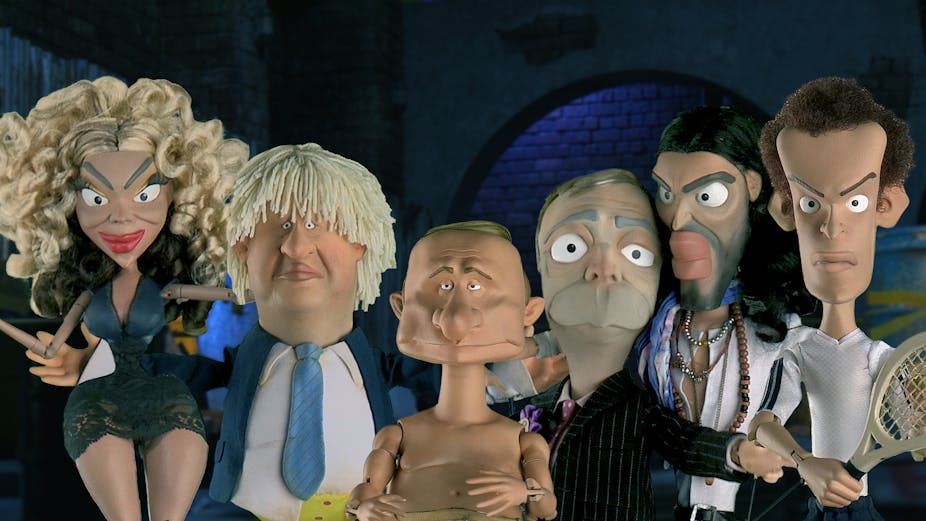Armando Iannucci, the man who gave us The Thick of It and Veep, has just called on Britons to make sure they vote in the upcoming general election.
Iannucci points out, rightly, that politicians only notice those who vote. Yet, while arguing against Russell Brand’s claim that the British political system is so flawed it is only by non-voting that change will come, Iannucci suggests that it is perhaps only comedians like Brand who offer a “proper, mature engagement with democracy”. Britain’s political parties in contrast only come in for criticism. They engage in negatives, Iannucci claims, such that it is almost impossible to know for what they actually stand.
This is all a little rich from the man responsible for television situation comedies that on both sides of the Atlantic show politicians and their spin doctors to be lying, incompetent careerists. The current popular hostility to representative democracy is by no means all due to comedians’ jokes about politicians: office-holders have hardly done themselves many favours on that count. But the likes of Iannucci have played some role in framing the exaggeratedly negative way we see our leaders.
A race apart
It was only a coincidence, but Iannucci’s intervention occurred just as news emerged that Newzoids, a satirical TV series billed as “the new Spitting Image” is planned.
Last seen in 1996, after an impressive 12-year run, Spitting Image is famous for depicting politicians as monstrous idiots. Margaret Thatcher was a man, John Major literally grey and David Steel a midget in David Owen’s pocket.
If the writing was occasionally acute, for the most part it fell back on the idea that all politicians were a race apart: its infamous puppets literally dehumanised them. The essentially anti-political nature of the series was confirmed by Peter Fluck, one of those responsible for the grotesque puppets when he told the Sunday Telegraph in 1984: “I just hate people who stand up there and tell us ‘I should be organising you all’, I just hate them.”
There is of course a long tradition of ridiculing politicians. This has had sound motives and sometimes serious intent: the object of satire is after all ostensibly to ridicule a situation in order to change it.
Yet, Spitting Image – but also its precursor Private Eye and those associated with the 1960s “satire boom” like Peter Cook – rarely had such an aim. For them ridicule was an end in itself. Certainly many of those doing the mocking had little interest in changing anything, leading the academic Peter Wilkin to describe them as “Tory Anarchists”. Jonathan Lynn, part of that generation of Oxbridge students who in the 1960s took to the stage rather than enter the professions confided in his 2011 memoirs Comedy Rules that he believed “the most useful contribution I could make to society would be to ridicule [politicians] when necessary”. Lynn would co-write Yes Minister in the 80s.
The Thin of It
Iannucci’s The Thick of It was initially informed by his anger at the lies he believed Tony Blair told to persuade the British to support the 2003 invasion of Iraq. As he told the BBC in 2005 he was “increasingly appalled by how the truth is quite unashamedly contorted in political debate”. But the series did not ever offer any solutions to this supposed problem: ridicule was its own reward (that and some insanely inventive swearing). At various times highlighting the broken relationship between the people and the politicians, the series simply stood back and mocked the situation.
And so it is rather paradoxical for Iannucci to now suggest Britons should vote for those politicians he has spent his career ridiculing. This is especially the case when he has arguably made a significant contribution to the very apathy against which he rails. In an age of mass ignorance about how parliamentary politics actually works, comedies like The Thick of It are one of the few means by which millions of Britons now get their information about how they are governed – and there are any number of audience surveys that show that what an audience sees on the screen about politics, they tend to believe.
It would be nice to think that, despite the revival of Spitting Image-style satire, we have had enough of this kind of comedy, one whose message has entered the mainstream to such an extent that UKIP is largely basing its 2015 campaign on it. If having a go at supposedly powerful politicians for their many and real shortcomings might once have appeared radical, it has become a corrosive view that only plays into the hands of the powerful.
Who benefits from the denigration of politicians but those who have the real power: tax-dodging multi-nationals and illegally intrusive media empires, bodies elected by nobody at all. Perhaps it is time for Iannucci to turn his attention to them?

